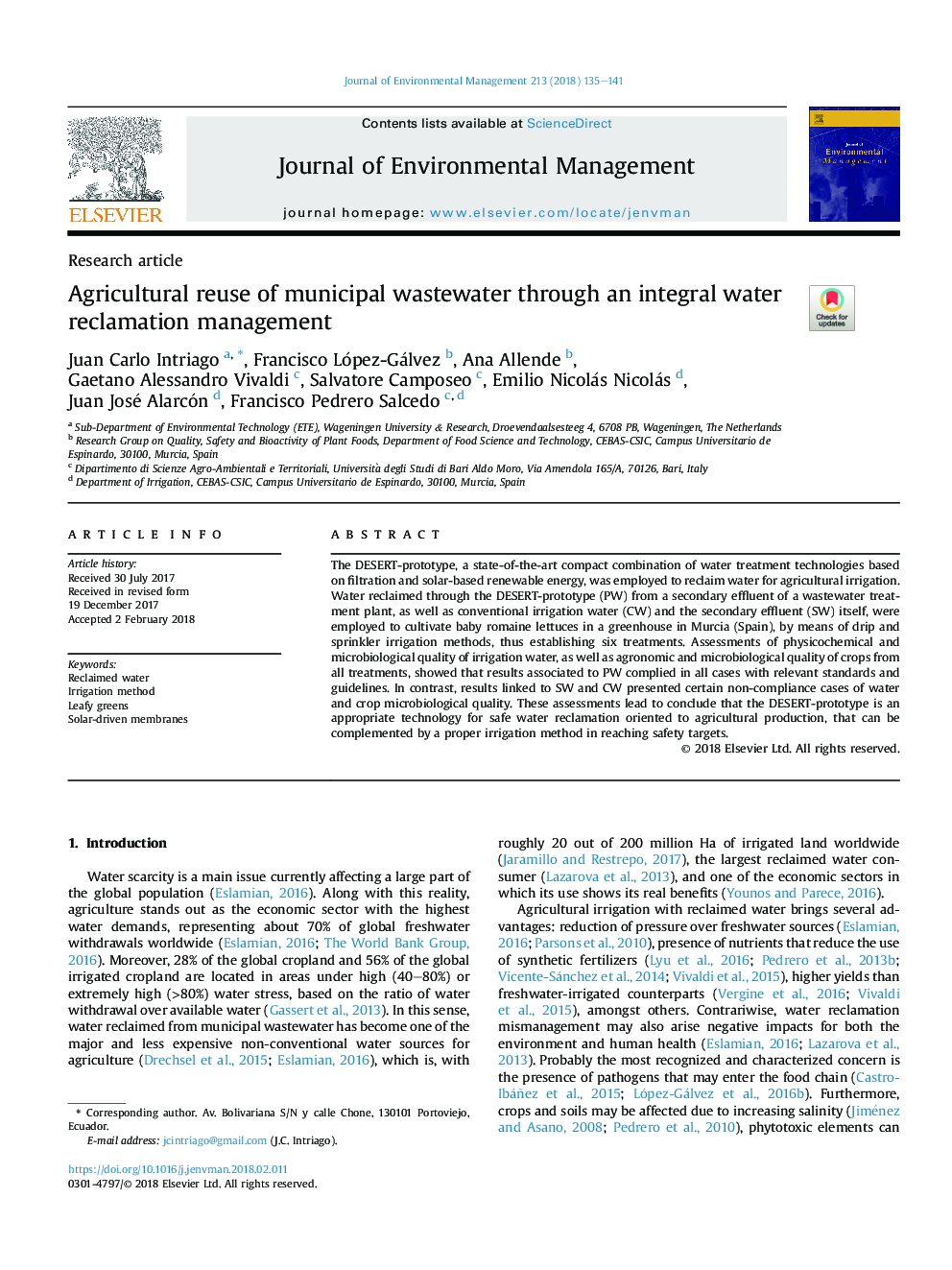| Article ID | Journal | Published Year | Pages | File Type |
|---|---|---|---|---|
| 7477700 | Journal of Environmental Management | 2018 | 7 Pages |
Abstract
The DESERT-prototype, a state-of-the-art compact combination of water treatment technologies based on filtration and solar-based renewable energy, was employed to reclaim water for agricultural irrigation. Water reclaimed through the DESERT-prototype (PW) from a secondary effluent of a wastewater treatment plant, as well as conventional irrigation water (CW) and the secondary effluent (SW) itself, were employed to cultivate baby romaine lettuces in a greenhouse in Murcia (Spain), by means of drip and sprinkler irrigation methods, thus establishing six treatments. Assessments of physicochemical and microbiological quality of irrigation water, as well as agronomic and microbiological quality of crops from all treatments, showed that results associated to PW complied in all cases with relevant standards and guidelines. In contrast, results linked to SW and CW presented certain non-compliance cases of water and crop microbiological quality. These assessments lead to conclude that the DESERT-prototype is an appropriate technology for safe water reclamation oriented to agricultural production, that can be complemented by a proper irrigation method in reaching safety targets.
Related Topics
Physical Sciences and Engineering
Energy
Renewable Energy, Sustainability and the Environment
Authors
Juan Carlo Intriago, Francisco López-Gálvez, Ana Allende, Gaetano Alessandro Vivaldi, Salvatore Camposeo, Emilio Nicolás Nicolás, Juan José Alarcón, Francisco Pedrero Salcedo,
